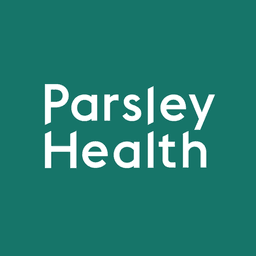Calcium is a crucial mineral for the body that is most known for its association with bone health and the prevention of osteoporosis. Most people get their daily calcium intake from supplements and dairy products. However, recent studies have revealed that these sources are less than ideal, if not dangerous.
“Milk often doesn’t do a body good,” explains Parsley Health’s San Francisco Medical Director Dr. Tiffany Lester. “Not only does it contain IGF-1 which increases growth hormone leading to inflammation and insulin spikes, it contains less calcium than a bowl of spinach. Popeye was right. Eat your spinach to maintain healthy calcium levels—not a glass of milk.”
A recent study revealed that calcium supplementation had no meaningful impact on bone health. Another study concluded that taking a daily supplement increases the risk of strokes and heart attacks in women. Some claim that there is no evidence that supplementation reduces the risk of fractures; in fact, it may actually produce the opposite outcome—i.e. brittle bones.
Finally, and perhaps most at odds with conventional wisdom, there is substantial research that dairy products—the foods we all associate with calcium—do not contribute to bone strength.
What Can You Really Do For Healthy Bones?
Calcium continues to be an important mineral that contributes to the development and maintenance of strong bones. The problem is not the mineral, but the medium of delivery. So what works?
Many plant foods such as leafy greens contain an abundance of calcium. For example, one cup of collard greens contains 268 mg of it and a cup of spinach contains 245 mg. To give you a comparison, a half cup of cow’s milk contains 138 mg. The greens win!
These Foods Are Better Sources of Calcium Than Milk
- Bone broth — add a tablespoon of apple cider vinegar to extract calcium from bone
- Sockeye canned salmon (with bones)
- Sardines (with bones)
- Beans
- Sea vegetables: kelp, wakame, hijiki
- Nuts
- Sesame seeds
- Leafy greens: parsley, collards, mustard greens, kale, dandelion greens, turnip greens, bok choy, spinach, romaine
- Green Beans
- Asparagus
- Cabbage
- Leeks
- Garlic
- Brussel Sprouts
- Oregano
- Basal
- Cumin
- Broccoli
How Much Calcium Do You Need?
There are different schools of thought when it comes to how much to consume on a daily basis.The NIH recommends a female between the age of 19 and 50 consume 1000 mg of calcium daily while other experts recommend between 600 and 800mg a day.
My strategy for getting somewhere between these two recommendations is to eat greens at every meal. I put a cup of greens into my morning Rebuild shake and then add at least a cup of greens to the base of my plate for lunch and dinner. This brings me to somewhere between 700 and 800 mg of calcium daily.
What Else Do You Need For Strong Bones?
No doubt, a certain amount of calcium is important for bone health but it’s not enough. Other vitamins and minerals such as phosphorous, magnesium, Vitamin D and K, and Strontium are important for strong bones.
What Else Can You Do For Strong Bones?
- Remove refined sugar. Sugar increases the body’s normal rate of mineral loss in sweat and urine by 300% post consumption. This means that if you routinely eat sugar, no amount of dietary supplementation can make up for the mineral loss. Remove processed sugars: cane sugar, turbinado sugar, confectioners sugar, corn syrup. Good alternatives are coconut sugar, stevia and organic raw honey.
- Remove soda. Soft drinks are especially high in phosphorous. When the ratio of phosphorous to calcium is too high, calcium is not absorbed. Too much phosphorus and too little calcium is linked to osteoporosis.
Eat protein but not too much. A high protein diet acidifies the blood, which removes calcium from the bones. Be sure to make your protein more of a side dish versus the main event on your plate.
